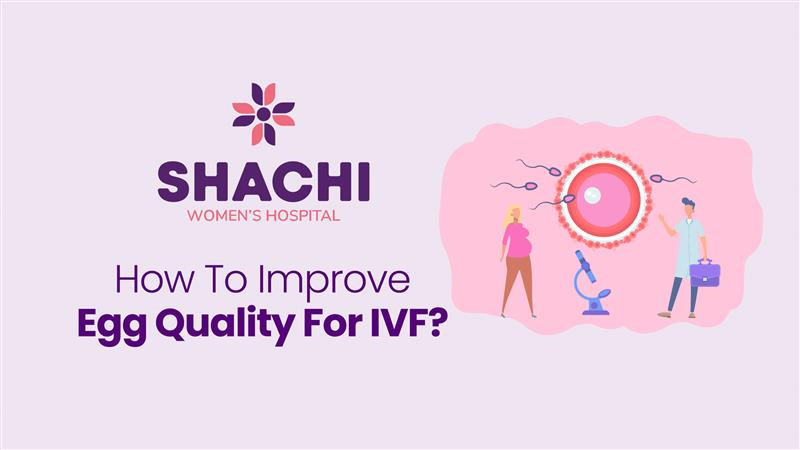
Are you undergoing IVF Treatment in Ahmedabad? Let’s be honest, when you're on the IVF journey, one of the most common things you’ll hear is “It all depends on egg quality.” And if you’re anything like most women going through fertility treatment, that phrase can make your stomach flip. But here's the truth: while we can't rewind our biological clock, we can take real steps to improve egg quality and give IVF the best possible shot.
So, grab a cup of herbal tea (ditch the caffeine, we’ll get to that in a minute), and let’s chat like two friends about what you can do to support your egg health
What Does “Egg Quality” Really Mean?
Egg quality isn’t just about having a good number of eggs. It’s about whether those eggs are genetically normal and healthy enough to develop into strong embryos. Poor egg quality can lead to failed fertilisation, poor embryo growth, or miscarriage. So yeah, it matters—a lot.
The good news? Even though we can’t change our age, we can take actions that positively impact egg quality over time. And trust me, every small change adds up.
1.Food is Your Fertility Fuel
Let’s start in the kitchen. Your diet plays a huge role when you're trying to improve egg quality.
Here’s what should make regular appearances on your plate:
Try to limit your intake of processed foods, sugar, and trans fats. They’re not doing your eggs any favours. Think of every bite as a gift to your future baby
2. Supplements Are Not Just Hype
If you’re aiming to improve egg quality, supplements can give you that extra push. Here are a few that fertility experts commonly recommend:
Talk to your fertility specialist before you stock up, but don’t ignore the supplement aisle entirely—it might just be your secret weapon.
3. Ditch the Toxins
Dangerous hormone disruptors are scattered all around our daily environment. If you’re trying to get that egg quality up, it’s time to detox your routine:
Those alterations may sound minor, but trust us: Your body (and your eggs) will appreciate the break.
4. Exercise, But Don’t Go Overboard
Yes, working out is great for blood flow, hormone balance, and stress. But here’s the twist, too much intense exercise can backfire if you're trying to improve egg quality.
Stick to moderate workouts like:
Aim for 30 minutes a day, 4–5 times a week. Consistency is key
5. Manage Stress (Even When It Feels Impossible)
We all know stress isn’t good for our bodies, but it’s especially rough on fertility. Chronic stress can mess with ovulation and hormone production, both of which impact egg quality.
Try:
Finding a few minutes each day to just breathe can make a big difference.
6. Get Enough Sleep (and Make It Quality Sleep)
You know how everything seems worse after a night of bad sleep? Well, your hormones think so, too. Lack of sleep can throw off your reproductive system. And if you're trying to improve egg quality, this is a part of the puzzle you can’t ignore.
Set a bedtime, avoid screens for an hour before you hit the pillow, and make your bedroom a peaceful, tech-free space.
So, How Long Does It Take to Improve Egg Quality?
This part is important! Your eggs go through a 90-day maturation cycle, which means the changes you make now will affect your eggs about three months later. If you’re planning an IVF cycle, try to make these changes at least 2-3 months in advance. Consistency and patience are your new best friends.
Trying to improve egg quality can feel overwhelming, especially when you’re juggling appointments, injections, and emotions. But Shachi Women's Hospital makes it easy for you, and remember: you have more power than you think. Every smart choice you make today helps create a healthier foundation for tomorrow.
You’re doing something amazing—preparing your body to bring new life into the world. Be kind to yourself along the way.


